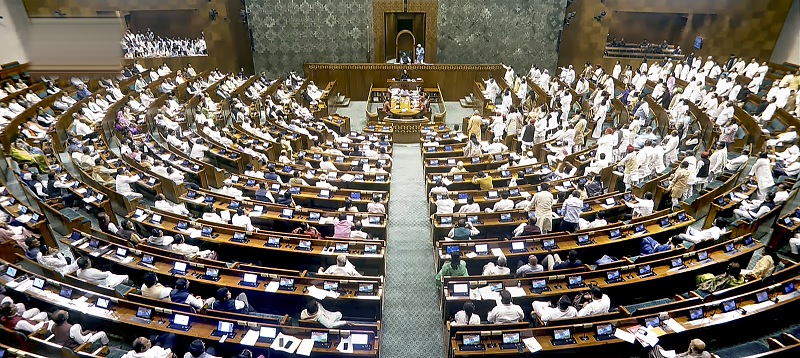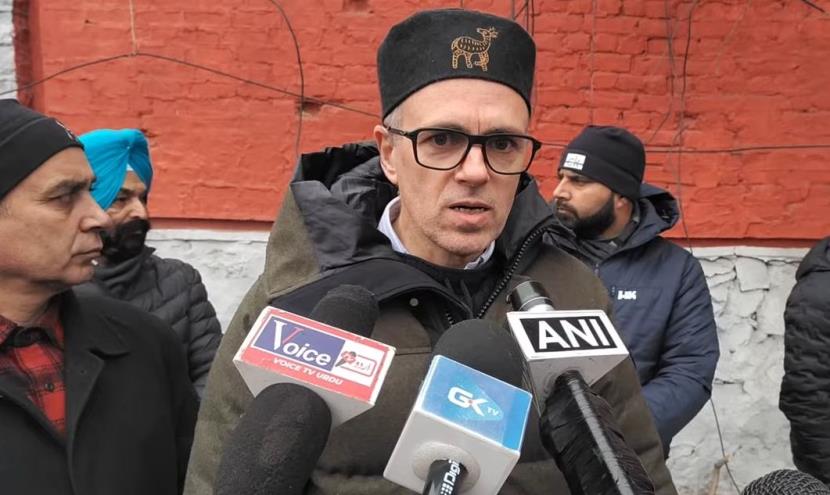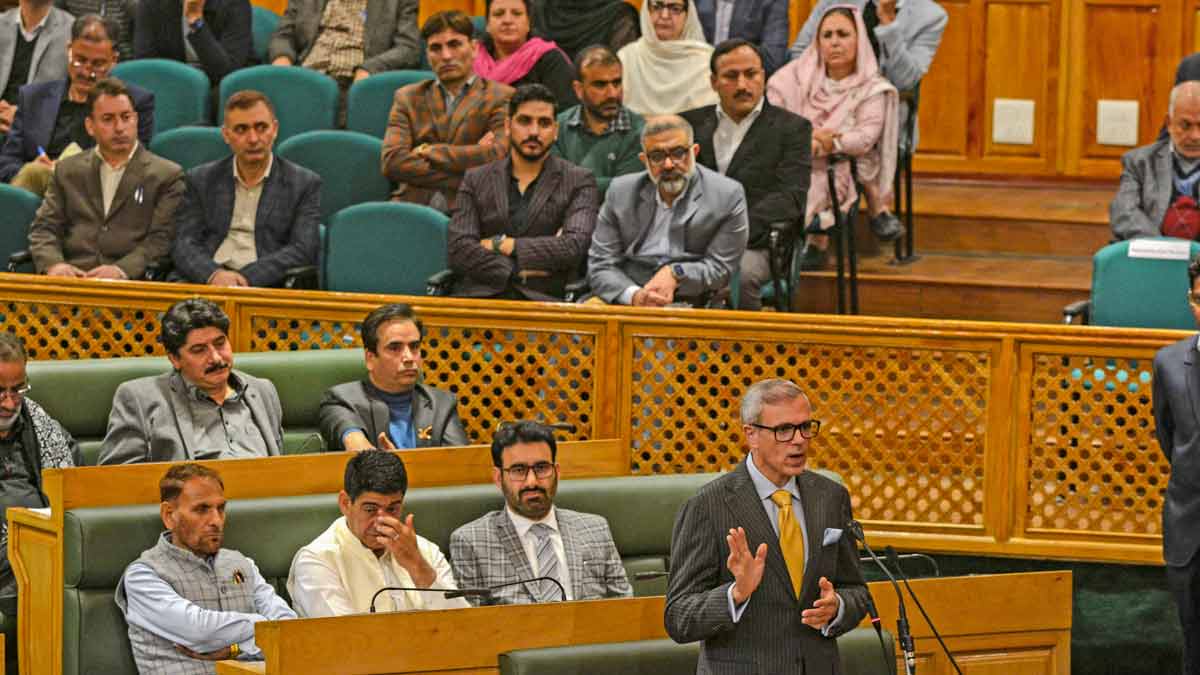Jammu & Kashmir Reorganisation Amendment Bill 2025: Statehood, Accountability & What It Means for Indian Politics
By: Javid Amin | 20 Aug 2025
A Defining Moment in Indian Democracy
India stands at the cusp of a historic parliamentary debate. On August 20, 2025, the Union government is set to table the Jammu and Kashmir Reorganisation (Amendment) Bill, 2025 in the Lok Sabha. Alongside, two other landmark legislations—the Constitution (130th Amendment) Bill, 2025 and the Government of Union Territories (Amendment) Bill, 2025—will also be presented.
Together, these bills propose sweeping changes in the way India holds its political leadership accountable. For the first time, the law seeks to enable the removal of a Prime Minister, Chief Minister, or Minister if they are arrested and detained for serious criminal offences. The developments not only stir fresh debates on constitutional morality, federalism, and democratic accountability, but also touch upon the long-pending aspirations of statehood restoration in Jammu and Kashmir.
This article explores, in detail, the content of these bills, their political backdrop, the constitutional debates they trigger, and their likely impact on India’s democratic future.
Jammu & Kashmir Reorganisation Amendment Bill 2025: What’s on the Table
The centerpiece of the day’s proceedings is the Jammu and Kashmir Reorganisation (Amendment) Bill, 2025. This bill seeks to amend Section 54 of the Jammu and Kashmir Reorganisation Act, 2019, which originally carved out the Union Territories of Jammu & Kashmir and Ladakh after the abrogation of Article 370.
Key Features of the Bill
-
Removal of Chief Minister or Minister upon Arrest
-
If a sitting Chief Minister or any Minister of Jammu and Kashmir is arrested or detained for a continuous period of 30 days or more on serious criminal charges, they may be automatically removed from office.
-
This applies irrespective of conviction, meaning mere arrest and detention (for offences carrying a punishment of 5 years or more) would be sufficient.
-
-
Joint Parliamentary Scrutiny
-
The bill is unlikely to be passed immediately. It will be referred to a Joint Committee of both Houses for detailed examination and possible modifications.
-
-
Possible Link to Statehood Restoration
-
While the bill itself focuses on ministerial accountability, the timing has triggered widespread speculation. Many see this as a precursor to restoring statehood—either fully or partially—to Jammu & Kashmir.
-
Political Backdrop: Why This Bill Matters Now
The timing of this legislation is politically symbolic and deeply significant.
-
Anniversary of Article 370’s Abrogation
-
The bills arrive just weeks after the sixth anniversary of August 5, 2019, the day Article 370 was abrogated. That decision dissolved Jammu & Kashmir’s special status, bifurcating it into two Union Territories.
-
-
Supreme Court Pressure
-
Recently, the Supreme Court of India asked the Centre to provide a clear timeline on the restoration of statehood. Petitions pending since 2019 have consistently challenged the indefinite delay.
-
-
Speculations Over Jammu vs. Kashmir Model
-
Political chatter hints at two possibilities:
-
Full statehood restoration for the entire Union Territory.
-
Bifurcation model: granting statehood to Jammu while keeping Kashmir under UT control, citing security and governance concerns.
-
-
-
Regional Political Stakes
-
Local political parties like the National Conference (NC), People’s Democratic Party (PDP), and Apni Party are closely watching developments. They see this as a litmus test of New Delhi’s intent—whether it genuinely seeks reconciliation or further centralization.
-
The Bigger Picture: Three Bills That Could Redefine Leadership Accountability
On August 20, 2025, the government isn’t only tabling the J&K bill. Two other bills, if passed, could reshape India’s democratic framework.
1. The Constitution (130th Amendment) Bill, 2025
-
Target: Prime Minister, Union Ministers, and Delhi Government Ministers.
-
Amendments Proposed: Articles 75, 164, and 239AA.
-
Key Provision: If the PM or any minister is arrested and detained for 30+ days for a serious offence (punishable by 5 years or more), they must resign or will be automatically removed.
2. The Government of Union Territories (Amendment) Bill, 2025
-
Target: Chief Ministers and Ministers in Union Territories (like Delhi, Puducherry, and Chandigarh).
-
Amendment to: Section 45 of the Union Territories Act, 1963.
-
Provision: Same removal mechanism based on detention.
3. The Jammu & Kashmir Reorganisation (Amendment) Bill, 2025
-
Target: Chief Minister and Ministers of J&K.
-
Amendment to: Section 54 of the 2019 Act.
-
Provision: Removal based on arrest/detention rule.
Why These Bills Are Controversial
The proposed framework has ignited a firestorm of political debate.
-
Presumption of Innocence vs. Political Morality
-
Traditionally, Indian democracy has operated on the principle of innocent until proven guilty.
-
These bills override that by holding mere detention (not conviction) as sufficient for disqualification.
-
-
Fear of Political Misuse
-
Critics argue this gives the ruling government a dangerous tool to weaponize investigative agencies.
-
By ensuring prolonged detention of opposition leaders, governments could trigger their removal without trial.
-
-
Supporters’ Counter-View
-
Proponents argue that leaders must be held to higher standards.
-
They stress that allowing tainted leaders to remain in power while under trial damages India’s global democratic image.
-
Jammu & Kashmir Angle: Statehood, Security, and Sentiments
While the accountability provisions apply across India, the J&K bill carries unique weight.
-
People’s Expectations
-
For many in Jammu and Kashmir, the bill rekindles hope that statehood is on its way back.
-
But for others, it feels like yet another layer of central control, pushing full statehood further away.
-
-
Security Concerns
-
The Centre has consistently cited terrorism, separatist violence, and cross-border infiltration as reasons for delay in restoring statehood.
-
Any amendment to J&K’s governance framework is viewed through the lens of national security.
-
-
Symbolism and Identity
-
For Kashmiris, the absence of statehood is not just administrative—it is deeply tied to identity and dignity.
-
Each legislative move is judged not only for its policy impact but also for its symbolic message.
-
Legal and Constitutional Implications
The bills open up several constitutional questions:
-
Do They Violate Federalism?
-
Critics say giving the Union sweeping powers to remove state leaders could erode federal balance.
-
-
Judicial Review
-
The Supreme Court may eventually be called upon to decide whether removal upon detention is consistent with fundamental rights under Articles 14 and 21.
-
-
Precedent for Future Governance
-
If upheld, these bills could mark a paradigm shift in political accountability, potentially influencing how future democracies across the globe handle similar dilemmas.
-
Political Reactions: Allies, Opposition, and Civil Society
The tabling of these bills has already sparked sharp responses.
-
Ruling BJP’s Stand: The government frames this as a moral revolution in politics, ensuring that leaders under serious charges cannot misuse office.
-
Opposition Parties: Congress, AAP, TMC, and Left parties see this as an authoritarian overreach. They argue it could be selectively used to weaken non-BJP governments.
-
Regional J&K Parties: NC and PDP demand that the government pair accountability reforms with full statehood restoration.
-
Civil Society: Human rights groups are worried about due process violations. Some academics hail it as a progressive step towards political transparency.
A Glimpse Into History: Leaders Facing Criminal Cases
India has witnessed several leaders in high office facing criminal investigations:
-
Indira Gandhi (1977–80): Arrested briefly after Emergency, yet remained politically dominant.
-
Lalu Prasad Yadav (1997): Convicted in the fodder scam but continued to influence politics.
-
Jayalalithaa (2001, 2014): Twice forced to step down due to corruption cases, yet later returned.
-
Arvind Kejriwal (2024): Arrested in the liquor policy case, but refused to resign as Delhi CM.
-
Hemant Soren (2024): Arrested on money laundering charges but continued as Jharkhand CM.
These cases illustrate the tension between legal accountability and political survival, which the new bills seek to resolve.
Global Comparisons: How Other Democracies Handle It
-
United Kingdom: Ministers are expected to resign if under investigation for serious misconduct, though not legally mandated.
-
United States: Presidents and Governors cannot be automatically removed unless impeached or convicted.
-
France & Germany: Stronger resignation norms exist, but automatic removal upon detention is rare.
India’s move, therefore, would be one of the boldest legal frameworks globally to tackle corruption and criminality in politics.
What Happens Next: The Road Ahead
-
Committee Scrutiny
-
All three bills are expected to be referred to a Joint Committee of Parliament, where detailed deliberations will take place.
-
-
Possible Amendments
-
The committee may introduce safeguards to prevent misuse, such as judicial oversight before automatic removal.
-
-
Political Test in Rajya Sabha
-
Even if passed in the Lok Sabha, the bills face a tougher battle in the Rajya Sabha, where the ruling party lacks an outright majority.
-
-
Supreme Court Challenge
-
Constitutional experts predict that immediate legal challenges will follow, keeping the final word in the judiciary’s hands.
-
Bottom-Line: Between Morality and Democracy’s Fragile Balance
The Jammu and Kashmir Reorganisation (Amendment) Bill, 2025, along with its companion bills, represents a defining moment in India’s democratic evolution. On one hand, it promises cleaner politics and moral accountability. On the other, it risks undermining due process, federalism, and political pluralism.
For Jammu and Kashmir, the stakes are even higher. The region awaits not just administrative reform but a restoration of dignity through statehood. Whether this bill becomes a stepping stone toward reconciliation—or a deeper entrenchment of central control—remains to be seen.
What is certain, however, is that August 20, 2025 will go down as a landmark date in the story of India’s constitutional and political journey.



